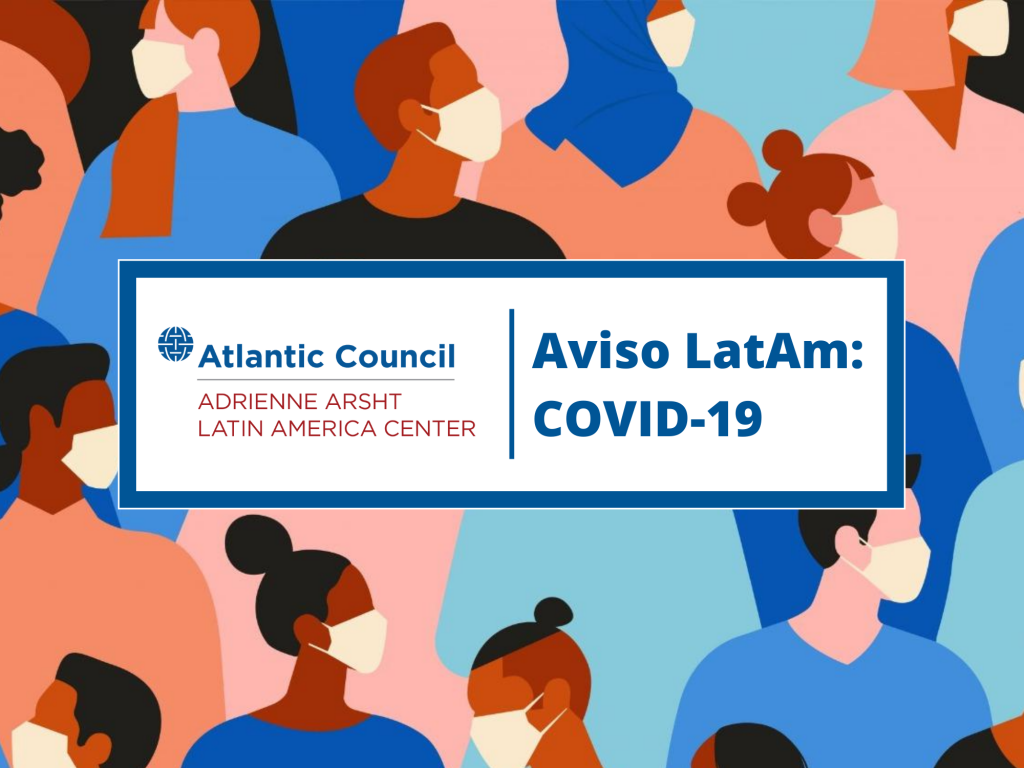What you should know
- Brazil: Incumbent Jair Bolsonaro and former President Luiz Inácio Lula da Silva will face off in presidential elections this Sunday, October 2. See more below.
- 4.1 million: The number of people facing food insecurity in the English and Dutch-speaking Caribbean. This amounts to 57 percent of the total population.
- Diplomatic relations: Colombia and Venezuela reopened their border to vehicles transporting goods following several years of politically-induced closure.
Expert take: Looking ahead at Brazil’s presidential election
From state-level representatives to Congressional members to the next president, Brazilians have their work cut out for them this Sunday. Brazil’s economy is rebounding but new challenges still lie ahead. Political leadership and the innovative economic policies that come with it will be vital to navigating these challenges, particularly in an uncertain and evolving global context.
Clouded by an extremely polarizing political campaign, polls suggest the contest will be between former President Luiz Inácio Lula da Silva and incumbent President Jair Bolsonaro. On the economic front, President Bolsonaro proposes a continuation of his economic priorities, doubling down on a business-friendly, open-market economy. On the other hand, former President Lula will adopt a pragmatic approach with a focus on a social agenda, targeting hunger and poverty levels. The challenge, regardless of who wins on October 2 or October 30 (if there is a second round), is in Congress, which will likely be highly fragmented. In that regard, the pandemic will continue to play a role in politics with the economy – and fiscal responsibility – at the top of the priority list for the next administration.
Monitoring economic headwinds and tailwinds in the region
- Honduras: The Central American Bank for Economic Integration (CABEI) issued a $200 million loan in order to mitigate fuel price pressures.
- Brazil: Despite a boost in activity as COVID-19 infections drop worldwide, real GDP growth projections for 2022 and 2023 are set to slow from 2.5 percent to 0.8 percent, respectively.
- Cuba: Hurricane Ian made landfall as a Category 3, knocking out power for the whole island. This comes after several months of intermittent blackouts due to failing power generators.
- Mexico: AMLO announced an agreement with companies to freeze prices on key foods as the country battles inflation of 8.8 percent.
- Paraguay: Officials met with the US for the first trade and investment council under their bilateral Trade and Investment Framework Agreement (TIFA) to discuss ways to deepen trade ties along intellectual property, agriculture, and the digital economy.
- Ecuador: The government announced it reached a debt agreement with Chinese lenders, delivering $1.4 billion in debt service relief over the next three years.
- Argentina: The International Monetary Fund (IMF) reached an initial agreement on reviewing the country’s debt restructuring, and is set to make $3.9 billion available upon completion.
In focus: LAC-Europe Relations
Several meetings covering transatlantic relations with Latin America and the Caribbean convened on the sidelines of last week’s United Nations General Assembly, including the Fifth Forum on Latin America, the United States, and Spain in the Global Economy, and AALAC’s side event “From Ukraine to the Americas: Fortifying recovery against global shocks.”
Spain’s Prime Minister, Pedro Sánchez, spoke with Colombian president Gustavo Petro about issues affecting both Latin America and Spain, including climate change and supply chains. Spain is set to hold the next presidency of the European Union, and hopes to revitalize EU-LAC ties. At the Atlantic Council’s event, Josep Borrell, Vice President of the European Commission, spoke about the EU’s willingness to work with LAC on key issues worsened by the Russian invasion of Ukraine, such as food insecurity and gas shortages. Both discussions focused on the importance of relocating supply chains to ensure stability.
Health + Innovation
- Argentina: A laboratory manufacturing Russia’s Sputnik V COIVD-19 vaccine announced it would halt the production line to target other types of diseases.
- PAHO: Ministers of Health and other high-level authorities from around the Americas met on September 26 for the organization’s 30th Pan American Sanitary Conference. At the conference, Dr. Jarbas Barbosa da Silva Jr. of Brazil was elected new Director for PAHO.
- COVID-19: Life expectancy in LAC for 2022 fell 2.9 years, from 75.1 years in 2019 and 72.7 years in 2021.
Geopolitics of vaccine donations: US vs. China
- The United States outpaces China in its donations of COVID-19 vaccines to Latin America and the Caribbean, with Colombia and Mexico topping the list. The region has received roughly 52 percent of all US COVID-19 vaccine donations. To learn more, visit our COVID-19 vaccine tracker: Latin America and the Caribbean.

